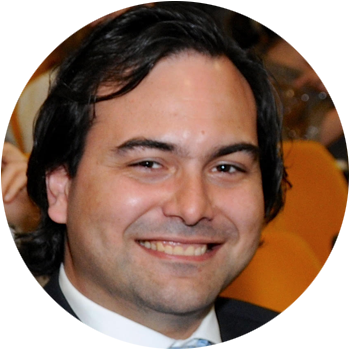15 Hours | 15 CEs
This on-demand professional training program on Introduction to developmentally appropriate interviewing using the Revised NICHD Protocol is presented by Michael Lamb, PhD, Irit Hershkowitz, PhD, Mireille Cyr, PhD, and Carlos Eduardo Peixoto, PhD.
The Revised NICHD (National Institute of Child Health and Human Development) Protocol, developed over the last three decades, provides detailed research- and evidence-based guidance for structured forensic interviews of young and vulnerable alleged victims of abuse. Effective use of the Protocol demands both (1) a thorough understanding of the underlying research and principles and (2) extended supervision and guidance as a trainee works to translate principles into effective practices.
This program reviews the underlying research that guided the development of the NICHD Investigative Interview Protocol and informed its structure and content, particularly child, event, and interview factors. This program is the first of a 4-program certificate program for users and consumers of the NICHD Investigative Interview Protocol and serves as a prerequisite.
There are 2 required texts for this program. Please purchase a personal copy of the texts via the links below before registering for the program.
Cyr, Mireille. (2022). Conducting Interviews with Child Victims of Abuse and Witnesses of Crime: A Practical Guide. London, UK: Routledge.
Lamb, M. E., Brown, D., Hershkowitz, I., Orbach, Y., & Esplin,P. W. (2018). Tell me what happened: Questioning Children About Abuse. Chichester: Wiley-Blackwell.

Intended Audience
This on-demand professional training program is intended for mental health and other allied professionals

Experience Level
This on-demand professional training program is appropriate for beginner, intermediate, and advanced level clinicians.

CE / CPD Credit
APA, ASWB, CPA, NBCC Click here for state and other regional board approvals.
Learning Objectives
Upon completion of this program you will be able to:

Describe the underlying research that guided the development of the Protocol and informed its structure and content: child and event factors

Describe the underlying research that guided the development of the Protocol and informed its structure and content: interview factors

Describe the pre-substantive phase of the interview

Describe how following the Protocol enhances the value of forensic interviews with children

Describe the substantive phase of the interview

Describe how following the Protocol enhances the value of forensic interviews with children

Describe how children’s developmental capacities, event characteristics, and interviewer practices influence the quality and quantity of information provided in forensic interviews

Describe strategies for preparing children for substantive questioning through rapport-building, ground rules, and episodic memory retrieval practice

Describe techniques for managing reluctance and supporting disclosure during the transitional phase of a forensic interview

Describe questioning strategies used to explore incidents in the substantive phase while maximizing free recall and minimizing suggestive questioning

Curriculum
1. Developmentally Appropriate Investigate Interviews
2. Preparing the Child for the Interview
3. Transitional Phase
4. Exploring Incidents
5. Review Session
Develop a Specialty Area of Practice
Transforming mental health professionals into experts
Expert Instructors
Professional training developed and delivered by the field's leading experts

CE Credit
Earn CE credit for meaningful professional training that will elevate your practice
Convenience & Flexibility
Learn at your own pace, from wherever you might be!

Earn Certificates
This is badge-earning course, which means it will help you earn a certificate that can be showcased on digital platforms like Linkedin.
CE Sponsorship Information
Palo Alto University, Continuing and Professional Studies (CONCEPT) is approved by the American Psychological Association to sponsor continuing education for psychologists. Palo Alto University, Continuing and Professional Studies (CONCEPT) maintains responsibility for this program and its content. Palo Alto University, Continuing and Professional Studies (CONCEPT) is approved by the Canadian Psychological Association to offer continuing education for psychologists. Palo Alto University, Continuing and Professional Studies (CONCEPT), SW CPE is recognized by the New York State Education Department’s State Board for Social Work as an approved provider of continuing education for licensed social workers #SW-0356 and the New York State Education Department’s State Board for Mental Health Practitioners as an approved provider of continuing education for licensed mental health counselors. #MHC-0073. Palo Alto University, Continuing and Professional Studies (CONCEPT) has been approved by NBCC as an Approved Continuing Education Provider, ACEP No. 6811. Programs that do not qualify for NBCC credit are clearly identified. CONCEPT Professional Training, #1480, is approved to offer social work continuing education by the Association of Social Work Boards (ASWB) Approved Continuing Education (ACE) program. Organizations, not individual courses, are approved as ACE providers. State and provincial regulatory boards have the final authority to determine whether an individual course may be accepted for continuing education credit. CONCEPT Professional Training maintains responsibility for this course. ACE provider approval period: 11/22/23-11/22/26. Social workers completing this course receive (clinical or social work ethics) continuing education credits.





